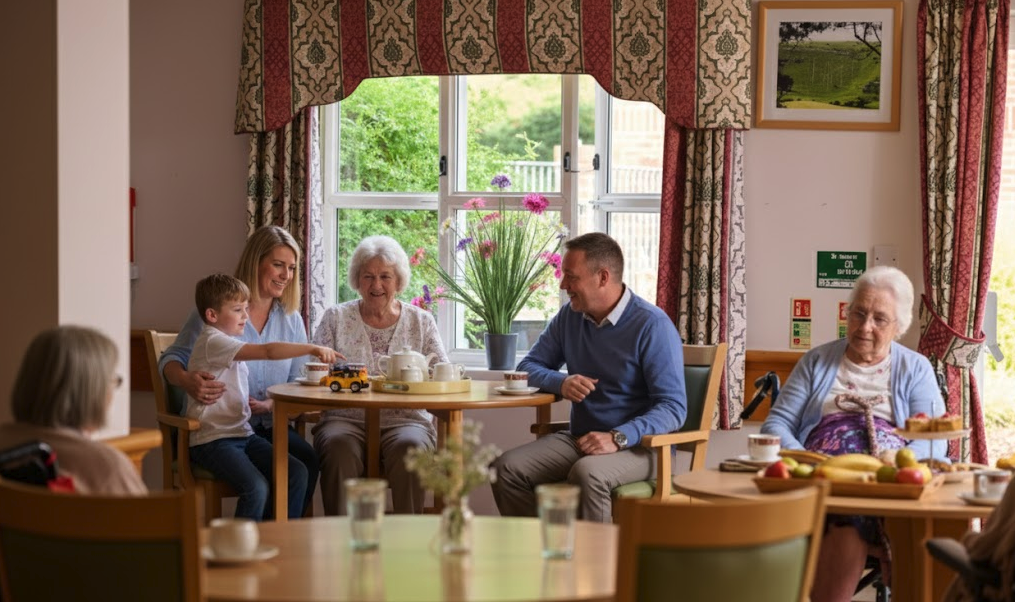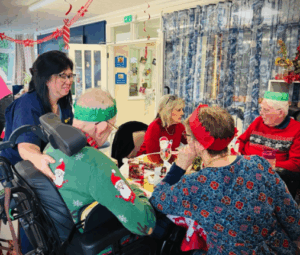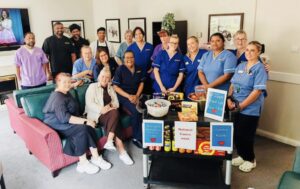Taking care of an elderly parent is common for most children in their late adulthood. It can be particularly rewarding, but also emotionally and physically demanding. In particular, adult children who are the sole caregivers, with no siblings or other family members to share the responsibility, balancing personal life and work can be extremely overwhelming.
If you are navigating a caregiver role or finding the responsibility too demanding, it might be time to consider additional options. Explore the signs that you should recognise when caring for an elderly person living alone.
Early Dementia or Memory Loss in Seniors Living Alone
One of the biggest indicators that an elderly parent may no longer be safe living alone is cognitive decline. Sure, everyone has their forgetful moments, which is why it’s important to recognise changes that are of concern.
Signs may include:
Memory Lapses
If your elderly parent is forgetting routine medication, scheduled appointments or general stages in their daily routine, such as brushing their teeth, this can be a strong indicator of early dementia or memory loss.
Confusion
Similar to memory lapses, confusion about dates or locations goes hand in hand. This can be quite distressing for seniors, especially when caregivers attempt to resolve any confusion.
Repeated Questions or Stories
We’ve all repeated a story, thinking it’s the first time we’ve shared it, so there is no need to jump to conclusions if you’ve heard an old story from your parent again. However, if your parent is struggling to retain new information or is retelling the same stories from earlier life, this can be a sign of cognitive looping and indicate problems with short-term memory.
Poor Decision Making
When dementia begins to damage the brain, higher-level thinking skills can decline. Skills such as making sound decisions, solving problems and regulating their behaviour and emotions can be affected.
Has your parent fallen for a landline scam? Made unusual purchases? Or neglected their hygiene when they can? When they are consistently making poor judgments and lack the awareness that something is wrong, it’s time to seek a professional evaluation.
Physical Health Decline of the Elderly
As you age, your mobility and physical health will decline. Nobody over the age of 60 will be able to do the same things they were doing in their twenties. Slowing down is nothing to worry about, but it’s important to recognise when mobility and physical health decline is an area of concern.
Signs may include:
Frequent Falls or Balance Issues
For an older adult, a single fall can be life-altering. Hundreds and thousands of people aged 60+ in the UK fracture bones as a result of a fall. From broken hips to sprained wrists, elderly injuries have huge recovery times, no matter the injury. Recoveries can lead to limited movement, which further reduces muscle and balance.
Chronic Health Conditions
Many adults live with chronic conditions, such as diabetes, heart disease, arthritis or high blood pressure. These conditions can be managed effectively with the right treatment plan, lifestyle adjustments and ongoing attention. Areas of concern arise when these conditions are poorly managed.
For example, when an elderly diabetic parent forgets meals or mismanages their insulin, they are at risk of fainting, entering a coma, vision loss, kidney damage, nerve pain, infections and even amputation. Over time, even “manageable” illnesses become unmanageable without support
Difficulty with Daily Activities
There are lots of indicators when deciding if it’s safe for a parent to live alone. A big sign that often helps many carers make the decision on whether their parent can live independently is how well they manage daily tasks.
When seniors are unable to carry out basic or routine tasks that are essential for daily functioning and personal care, such as bathing, dressing, eating and bathroom use, it’s a strong indicator that they need additional, round-the-clock support.
Signs of an Unsafe Living Environment
Another indicator that an elderly parent isn’t coping well on their own is the condition of their home. Some shelves may need dusting or the hoover may need to be whipped around, but these aren’t things you need to be concerned about. It’s time to take a closer look when someone who once kept a clean and organised household displays a consistent pattern of home neglect, safety risks or disorganisation.
Keep your eye out for the following signs:
- Spoiled food in the fridge or cupboards.
- Unopened letters or unpaid bills.
- Clutter or tripping hazards on stairs and in walkways.
- Uncleaned spills, mould build-up or piles of rubbish bags.
- Scorched cookware or improper use of appliances.
- Electrical hazards from overloaded plug sockets or things being left on.
Financial Vulnerability – Can They Manage Their Money Safely?
Managing finances can be challenging for most people, but when cognitive or physical decline creeps in, elderly people often find themselves overwhelmed by day-to-day financial responsibility. Financial vulnerability also makes them susceptible to scams, fraud and exploitation, with the largest target being those 65 and over.
The following signs are a strong indicator of financial vulnerability:
- Forgetting to pay rent, mortgages, insurance or utility bills.
- Confusion about bank accounts, cards or transactions.
- Inability to explain recent withdrawals or spending.
- Being taken advantage of by strangers, caregivers or relatives.
- Letting others use their bank cards.
- Not knowing how much money they have in their accounts.
When Family Support Isn’t Enough
Caring for an ageing parent is one of the most meaningful things you can do. The relationship between a parent and child is like no other, and no one knows your parent like you do. But taking on the responsibility of a sole caretaker can be the most physically, mentally and emotionally draining thing that you do.
It’s common for adult children to step into the role of caregiver without preparation. When balancing work, family and your own health was challenging, caregiving on top of that is unsustainable.
It’s Okay to Say “This is Too Much”
It can be extremely difficult to watch a loved one decline and even harder to admit that they need additional support. Time and time again, caregivers push themselves way beyond their limits because they are worried about somebody else taking care of their elderly parent. We understand your worries, but healthcare professionals are equipped to provide the right care and support.
There is no reason to feel guilty about admitting that it’s too much. Sharing the responsibility of care can actually improve your parent’s quality of life, as somebody else will be able to assist in giving them the best care and support possible.
Supporting a Parent Transition to a Care Home
Helping a parent transition from living independently to receiving more structured care is rarely easy. It can stir up a mix of emotions for everyone. After all, leaving a familiar home often feels like a loss of independence, and for adult children, it can feel like crossing a threshold into a new phase of responsibility.
But while the emotional weight is real, so is the opportunity for a safer, healthier, and more connected future. The key is to approach the conversation and the decision-making process with empathy, patience, and a deep respect for your parents’ dignity and preferences. Rather than framing the move as a loss, try to position it as a positive next step in maintaining their quality of life.
Finding the Right Care Home Makes All the Difference
Choosing the right care environment is crucial. Not just for physical health, but for emotional well-being and a sense of belonging. That’s where high-quality, person-centred providers like Splendid Healthcare come in.
At Splendid Healthcare, we operate 3 CQC-rated care homes across West Sussex, all known for their compassionate, professional, and attentive approach.
Here, your loved one can benefit from:
- 24/7 care and support tailored to their unique needs.
- Safe, thoughtfully designed environments that reduce fall risks and support mobility.
- Nutritious, home-style meals and medication management.
- Engaging in social activities to combat isolation and promote mental stimulation.
- A warm, welcoming atmosphere where staff treat residents like family
This level of care can be transformative, especially for those who have been struggling with loneliness, memory loss, or managing daily tasks alone. If you’re beginning to explore care options, we’re here to help!
Get in touch with our friendly team today to discuss your loved one’s needs, ask questions, or arrange a no-obligation visit to one of our care homes. We’re here to support you, every step of the way.




